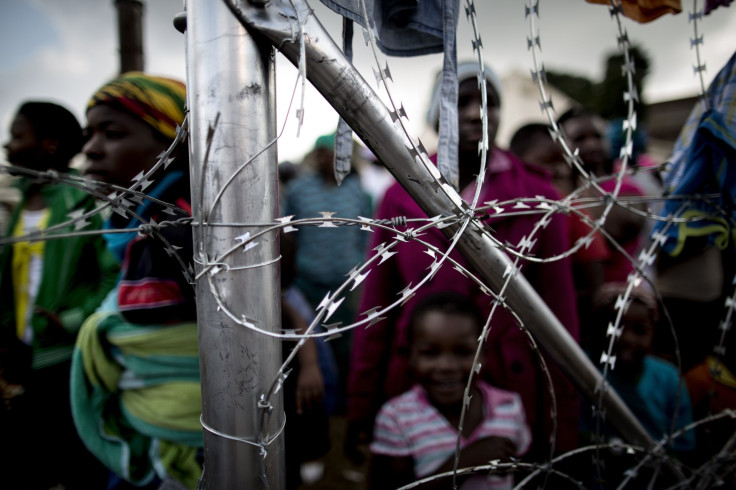South Africa Xenophobia 2015: Last Refugee Camp For Displaced Foreigners To Close

The last refugee shelter in South Africa for those displaced by a recent spate of xenophobic attacks was scheduled to close Tuesday, which would leave scores of Burundians and Congolese unwilling or unable to return to their war-torn countries. Local officials have decided to close the Chatsworth camp, which at one point hosted more than 5,000 people displaced by the violence, after concluding the situation had stabilized, according to media reports.
"After assessing the conditions and conducting extensive community dialogues through the Provincial Department of Community Safety and Liaison, the city is pleased that the situation has normalized which therefore means that the shelter should cease to operate," Tozi Mthethwa, spokesperson for the eThekwini municipality located south of Durban, said Monday in a statement to Al Jazeera. "African immigrants at the shelter have been offered an option of being reintegrated into the communities they once lived in, while others have requested to be repatriated to their countries of origin."
Some 212 men, women and children still live in the Chatsworth camp, mostly immigrants from Burundi and the Democratic Republic of Congo. The refugees told local media it’s still too dangerous to return to their home countries or to their South African communities, where at least eight people were killed following a series of attacks on African immigrants in April.
“I feel like I am a sub-human being,” Alex Msambia, a 29-year-old from Burundi, told South African news site the Daily Vox at the Chatsworth camp last week. “My own country doesn’t want me, the South African community does not want me and this camp is being closed. I am prepared to fight for my right to be here when Tuesday comes.”
Like many other Burundians who sought refuge in South Africa, Msambia said he has nowhere to go if the camp closes. Burundi plunged into social and political unrest leading up to the country’s general elections sparked by President Pierre Nkurunziza’s bid to stay in power for a third term. The situation took a turn for the worst when Burundian army general Godefroid Niyombare launched a failed coup attempt to oust the president in May. Dozens, including an opposition leader, have been killed in weeks of violence and unrest, and another 127,000 have fled the East African nation, according to the United Nations.
Burundians and other foreigners living in South Africa around Durban and Johannesburg were the targets of xenophobic violence in April. Some South African natives blamed unemployment and poverty issues on African migrants living and working in the country. A spate of anti-immigrant attacks also swept South Africa in 2008, resulting in at least 67 deaths.
“The South African state granted me refugee status; they know what is happening in my country. I can’t go back there. I also can’t go back to the community,” Msambia said. “I am still traumatized; the camp is my only option for now. If they take the tents away, I will lay my [mattress] here and stay here.”
Many Congolese living in the Chatsworth camp face the same unknown fate. Violence surged in eastern DRC when Rwanda and Uganda invaded the country in 1996 to root out remaining perpetrators of the Rwandan genocide hiding there. Despite a peace agreement between 22 armed groups in 2008, fighting between multiple armed groups has continued and so has terrorizing civilians. More than 100 women and girls said they were raped in an eastern town during a ruthless attack by militia last month.
Bipemacho Benedicta, a 26-year-old Congolese, lives in the Chatsworth camp and told the Daily Vox she has no other option. She also fears for the safety of her children. “I don’t know where I will go with them,” Benedicta told the South African news site last week. “The choices on offer are not wide enough; going back to the community is almost as good as throwing myself back to the war-torn Congo.”
© Copyright IBTimes 2024. All rights reserved.





















